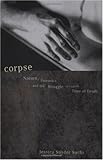Corpse: Nature, Forensics, And The Struggle To Pinpoint Time Of Death
Corpse: Nature, Forensics, And The Struggle To Pinpoint Time Of Death

- ISBN13: 9780738207711
- Condition: New
- Notes: BRAND NEW FROM PUBLISHER! BUY WITH CONFIDENCE, Over one million books sold! 98% Positive feedback. Compare our books, prices and service to the competition. 100% Satisfaction Guaranteed
How the hot new science of forensic ecology is cracking some of the world's toughest criminal cases.
When detectives come upon a murder victim, there's one thing they want to know above all else: When did the victim die? The answer can narrow a group of suspects, make or break an alibi, even assign a name to an unidentified body. But outside the fictional world of murder mysteries, time-of-death determinations have remained infamously elusive, bedeviling criminal investigators throughout history. Armed with an array of high-tech devices and tests, the world's best forensic pathologists are doing their best to shift the balance, but as Jessica Snyder Sachs demonstrates so eloquently in Corpse, this is a case in which nature might just trump technology: Plants, chemicals, and insects found near the body are turning out to be the fiercest weapons in our crime-fighting arsenal. In this highly original book, Sachs accompanies an eccentric group of entomologists, anthropologists, biochemists, and botanists--a new kind of biological "Mod Squad"--on some of their grisliest, most intractable cases. She also takes us into the courtroom, where "post-O.J." forensic science as a whole is coming under fire and the new multidisciplinary art of forensic ecology is struggling to establish its credibility. Corpse is the fascinating story of the 2000year search to pinpoint time of death. It is also the terrible and beautiful story of what happens to our bodies when we die.In 44 B.C., a physician named Antistius examined the fresh corpse of Julius Caesar and, in science journalist Jessica Sachs's words, "announced that he knew which of the would-be emperor's twenty-three stab wounds had proved fatal," thus giving birth to a new science.
In making his announcement "before the forum"--the origin of the term forensics--Antistius relied on the medical knowledge of the day, which was none too developed. His modern counterparts have much better science at their disposal to account for causes of death, which, Sachs notes, tend to be "usually more than obvious to every police officer responding to the scene." Less obvious, and far more elusive, is the exact time death occurred, the datum that forensic pathologists seek to obtain but usually have to guess at, hampered "by death's infinite variations." Examining a dozen case studies that touch on the contents of Nicole Brown Simpson's stomach, a felled Confederate soldier's skull, the methods of an English serial killer, and the contribution of an Indiana-based student of maggots to the forensic ecology of human remains, Sachs explores the means by which pathologists measure the interval between death and a body's discovery--a determination with often profound implications.
Sachs's book is a lucid, oddly fascinating work of popular science, though it's not for the queasy of stomach or the faint of heart. --Gregory McNamee

List Price: $ 15.95
Price: $ 8.00
More Nature Products
No comments:
Post a Comment